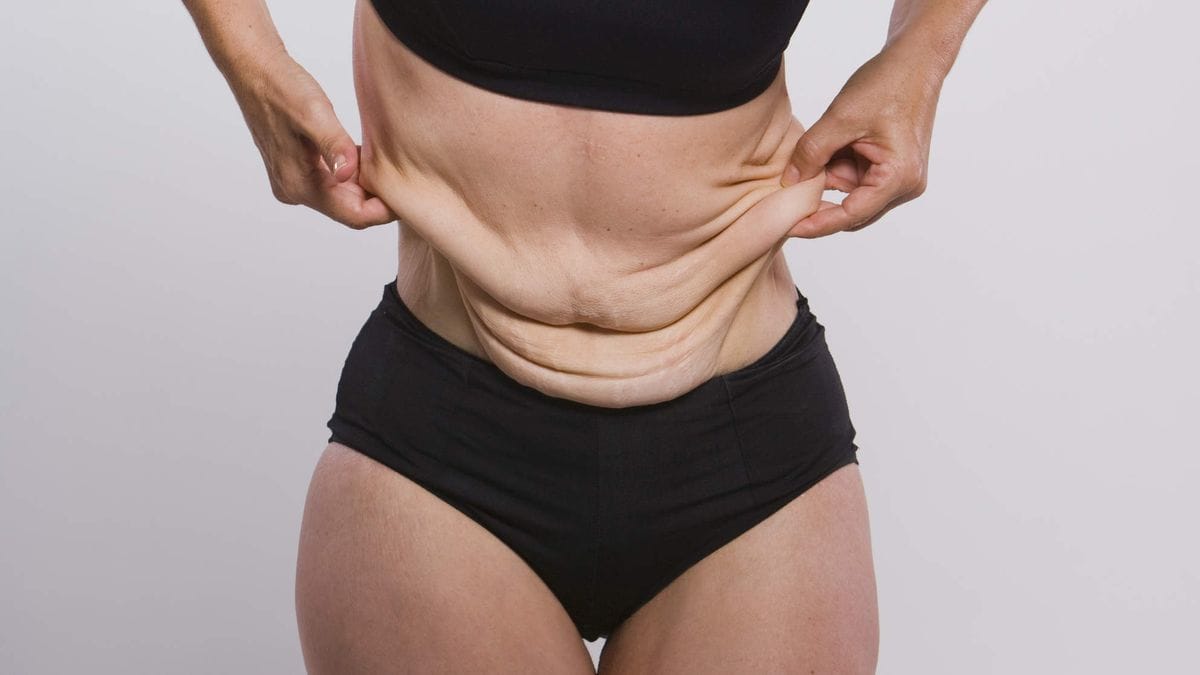How Does Sleep Affect Weight Loss and Belly Fat?
When it comes to weight loss and belly fat reduction, many people focus only on diet and exercise, forgetting a powerful factor: sleep. In reality, sleep directly affects how your body burns fat, controls hunger, and stores energy. Poor sleep can sabotage your weight loss journey, while quality sleep can accelerate fat burning and shrink belly fat.
In short, sleep is not just “rest” but a vital metabolic tool. Getting enough sleep regulates hormones, reduces late-night cravings, improves insulin sensitivity, and balances cortisol levels. All of these processes determine whether your body stores fat around the belly or burns it for energy.

The Science Behind Sleep and Weight Loss
Research consistently shows that lack of sleep increases the risk of obesity. A landmark study published in the Annals of Internal Medicine revealed that dieters who slept 5.5 hours lost less fat compared to those who slept 8.5 hours, even with the same calorie intake. Sleep affects weight loss through several biological mechanisms:
Hormonal Regulation
Leptin and ghrelin are hormones that control hunger and satiety. Poor sleep decreases leptin (the satiety hormone) and increases ghrelin (the hunger hormone), making you crave junk food and overeat.Cortisol and Belly Fat
Sleep deprivation raises cortisol, the stress hormone. Elevated cortisol promotes fat storage around the belly, leading to dangerous visceral fat that surrounds organs.Insulin Sensitivity
Poor sleep reduces your body’s ability to process glucose, leading to higher blood sugar and fat storage. Over time, this contributes to weight gain and type 2 diabetes.Energy and Metabolism
When you are sleep-deprived, your metabolism slows down and your motivation to exercise decreases. This double effect leads to fewer calories burned and more fat stored.
Why Belly Fat Is Most Affected by Sleep Quality
Belly fat, especially visceral fat, is extremely sensitive to hormonal imbalances caused by sleep loss. Cortisol spikes trigger your body to store more fat in the abdominal area as a survival mechanism. This is why people with chronic stress and poor sleep often struggle with stubborn belly fat, even if they eat relatively well.

How Many Hours of Sleep Do You Need for Weight Loss?
Most adults need 7 to 9 hours of quality sleep per night. Less than 6 hours on a regular basis is associated with higher body fat percentage, stronger sugar cravings, and slower metabolism. But it’s not just about quantity. Sleep quality matters equally. Deep sleep and REM cycles are essential for metabolic repair and fat burning.
Tips to Improve Sleep for Better Weight Loss
Keep a Consistent Schedule
Go to bed and wake up at the same time daily to regulate your circadian rhythm.Limit Blue Light Exposure
Avoid screens 1 hour before bed to improve melatonin production.Create a Sleep-Friendly Environment
Dark, quiet, and cool rooms promote deeper sleep.Avoid Caffeine and Alcohol Before Bed
Both can disrupt sleep cycles and reduce deep sleep.Try Relaxation Techniques
Meditation, breathing exercises, or reading can calm your nervous system.
Lifestyle Examples and Real-Life Stories
Many people report significant fat loss simply by improving their sleep routine. For example, individuals who shifted from 5 hours to 8 hours of sleep saw not only better energy levels but also a flatter stomach within months. Scientific evidence and real-life testimonials align: sleep is the missing piece for those struggling with weight despite diet and exercise.
Frequently Asked Questions (FAQ)
Can I lose weight just by sleeping more?
Not exactly. Sleep alone won’t make you lose fat, but poor sleep will block fat loss, even if your diet and exercise are on point.
Why does lack of sleep cause belly fat?
Because of increased cortisol and reduced insulin sensitivity, which push fat storage into the abdominal area.
How many hours of sleep are best for burning fat?
Between 7 and 9 hours per night is optimal for most adults.
Does sleeping late at night affect belly fat?
Yes. Irregular sleep patterns disrupt your circadian rhythm and hormone balance, increasing the risk of belly fat.
Should I take supplements for better sleep?
If lifestyle changes aren’t enough, natural supplements like magnesium, melatonin, or herbal teas can help.
What products can help improve sleep and weight loss?
Memory foam pillow for better neck support
Blue light blocking glasses
Weighted blanket for deeper sleep
Herbal sleep tea
Sleep tracker device
Warnings and Tips to Avoid Mistakes
Do not rely only on diet and exercise, neglecting sleep.
Avoid stimulants like coffee or energy drinks in the evening.
Don’t underestimate stress management; stress worsens sleep and belly fat.
Final Thoughts: 7 Key Tips on Sleep and Weight Loss
Sleep is as important as diet and exercise for weight loss.
Aim for 7–9 hours of quality sleep each night.
Manage stress to lower cortisol and belly fat storage.
Improve sleep hygiene by limiting blue light and creating a calm environment.
Pair good sleep with balanced nutrition and regular exercise.
Track your sleep to identify patterns that may sabotage weight loss.
Remember: without proper sleep, belly fat becomes nearly impossible to lose.
Reference & Additional Reading
Inspired by studies and insights from:
www.health.harvard.edu
www.menshealth.com
www.healthline.com
www.womenshealthmag.com
www.ncbi.nlm.nih.gov
www.webmd.com
www.medlineplus.gov
www.tridenttech.edu
www.burnexia.com

